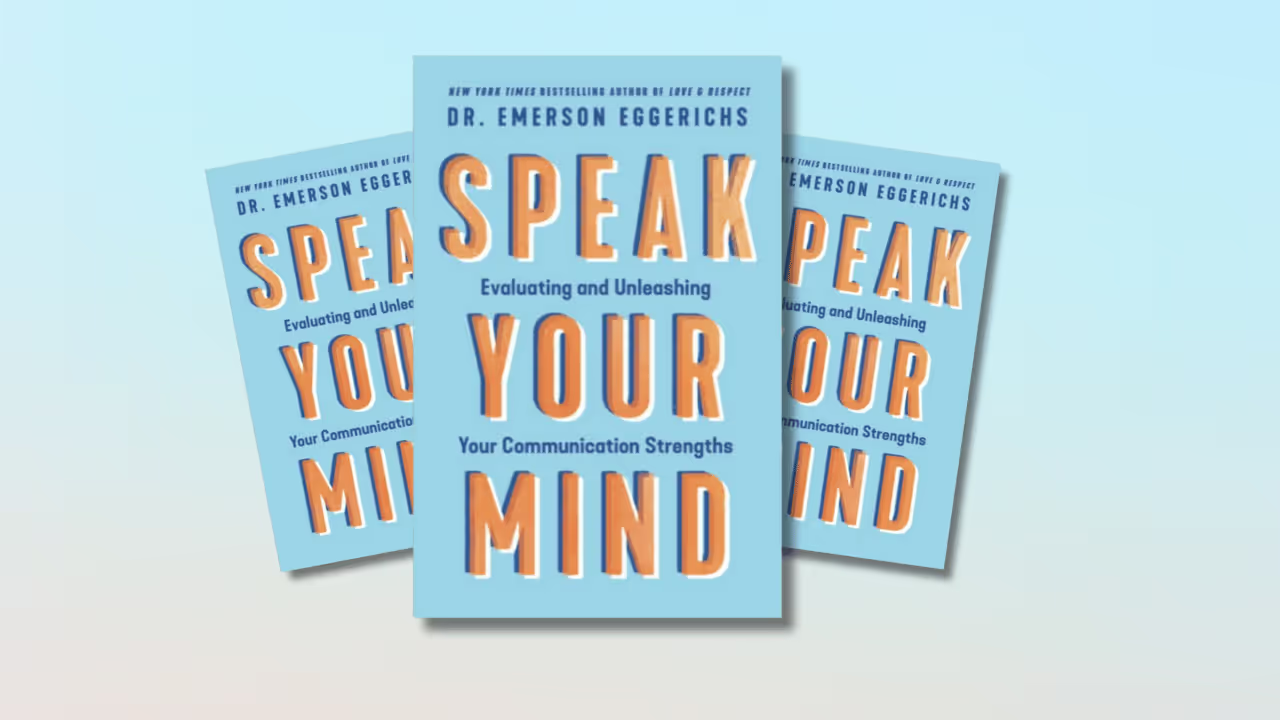

Is My Spouse Good or Evil?

Q: I have heard you refer to “good will” a lot. What does that really mean and how do I know if my spouse has good will or evil will toward me?
Dr. E says: Good question! The line between good and evil will can certainly get blurred when couples are spinning on the Crazy Cycle! Let me try to unpack this in less than 1,000 words.
Good intentions, poor delivery.
A simple definition of good will is “the intention to do good toward the other person.”
But there is much more to it than that. A spouse may intend to do good, but fail to deliver. Good intentions do not necessarily guarantee good results.
The apostle Paul captured the reality of good intentions but poor follow-through when he wrote about his own struggles with the flesh in Romans 7:19: “I don’t do the good things I want to do. I keep on doing the evil things I don’t want to do.”
We all know what Paul is talking about. You or your spouse may want to do the right thing, but you don’t; or you or your spouse may want to stop doing the wrong things, but you don’t.
Most of us don’t plot evil.
When your spouse fails to follow through on good intentions, your definition of good will must also include the idea that good willed people do not mean any harm; they do not intend real evil toward one another. Few of us get up in the morning plotting how we can hurt our spouse.
Your spouse may be neglectful, forgetful, or make a careless, even thoughtless remark. As a result, you may be hurt or angry and may lash out in some way to retaliate.
But despite all these failings, deep down you both care for each other. Beneath the turmoil on the surface of what is going on, your goodwill remains intact.
Some people choose the dark side.
But doesn’t Scripture also teach that “The heart is deceitful and desperately wicked”? And aren’t some spouses truly evil-willed?
Even more to the point, Scripture clearly attests that we live in a fallen world in which some people choose the dark side. David describes the wicked person like this: “Even as he lies in bed he makes evil plans. He commits himself to a sinful way of life. He never says no to what is wrong.”
Evil can destroy a marriage.
Scripture also points to how evil can destroy a marriage. A husband can love his mate, but deep within her soul she turns her heart against what is good. She becomes an adulterous, wayward wife with seductive words “who has left the partner of her youth and ignored the covenant she made before God” (Proverbs 2:16-17).
And in Malachi 2:13-14, the prophet tells wayward men that God no longer honors their offerings and instead is “acting as the witness between you and the wife of your youth” because he has broken the marriage covenant.
I get a lot of mail from spouses who have been the victims of evil treatment by their partners. These partners made a decision to no longer act in good will.
As you read these lines, you may be a victim of your spouse’s evil will. I do not know your situation, so I have no way of knowing if you are totally accurate in your assessment and if your spouse does indeed have an evil will toward you.
What I do know, however, is that it is a serious thing to make the severe judgment that someone is completely evil willed.
A Severe Judgment
We must never label a Peter as a Judas, even though on a certain occasion Peter did act like Judas.
Judas betrayed Jesus into the hands of His enemies. Since that fateful act, Judas has been seen as one of most sinister traitors in all history.
But Peter was also a traitor, denying his Lord three times, just as Jesus said he would. Everyone knows, however, there is a 180 degree difference between the spirit of Peter and the spirit of Judas. Full of remorse, but not repentance, Judas committed suicide. Peter matched his remorse with repentance and was restored in fellowship with his Lord and went on to serve Him.
To repeat, when a spouse fails to do good and does bad, this does not automatically mean a spouse lacks good will. When a spouse gets mean or nasty it is easy to label them evil willed. Granted, you may not use the term “evil will” but at the moment you are certainly not experiencing good will and your natural inclination is to react unlovingly or disrespectfully.
Distinguish good character from evil.
But if you are trying to live out Love and Respect, your spouse’s temporary feistiness, nastiness, or selfishness must be distinguished from evil character.
Why do I caution people to withhold judgment of another as evil willed?
Once you profile another as evil willed, there is little hope of reconciliation. Once impugning the motives of another, intimacy with that person will disappear. You will no longer be allies, but enemies. For all practical purposes the relationship is over.
However, this is not to minimize evil! I am not seeking to call evil good, but as in all things, we must be careful to look at the facts and not rush to judgment.
Emerson
.svg)





.svg)

%20(1).avif)











